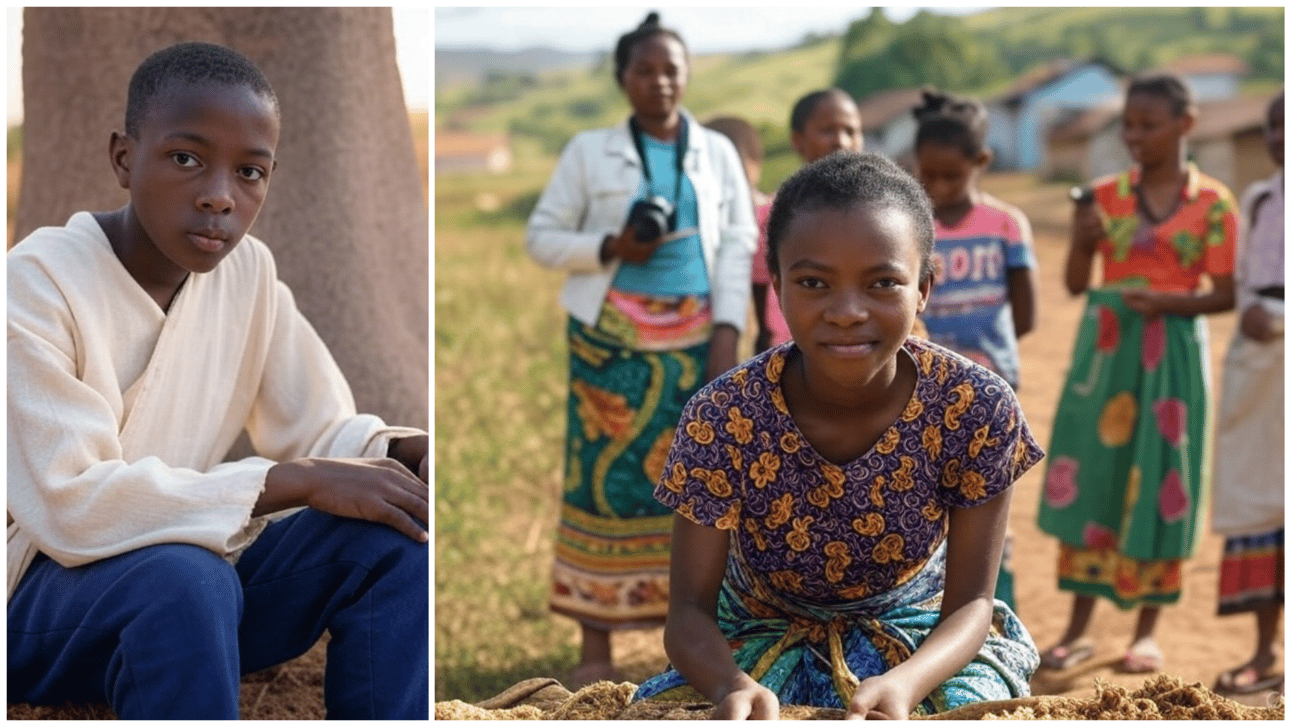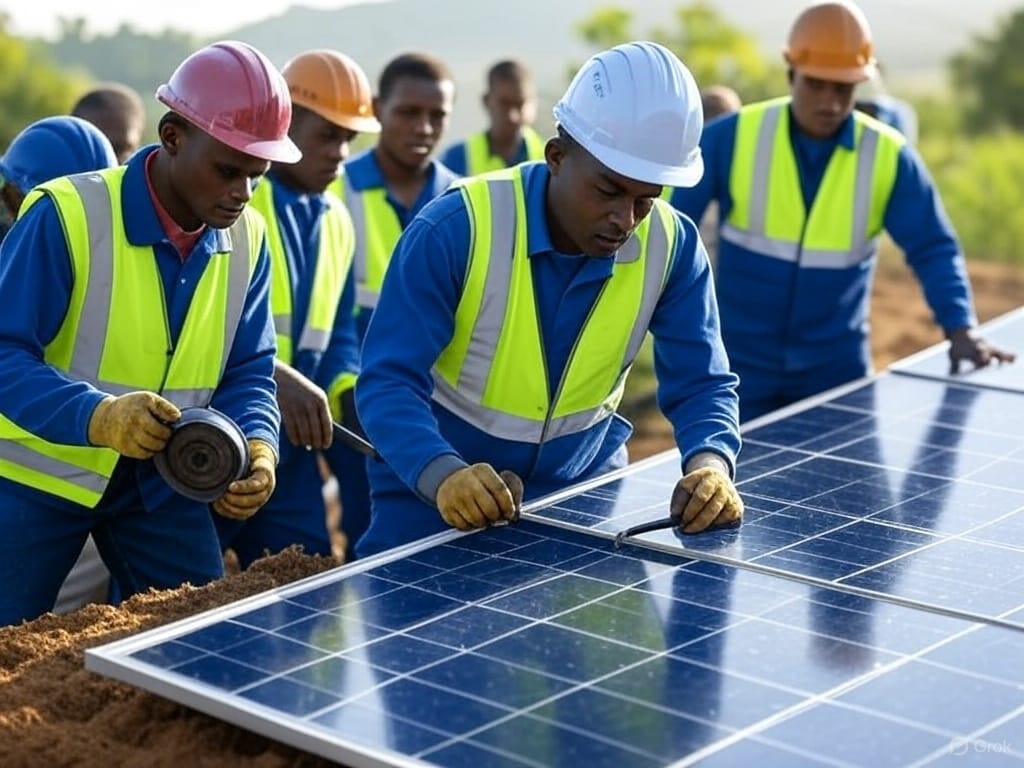- ClimateOS Africa.
- Posts
- #Issue 18. TLDR: Climate Change and the Mental Health of Teenagers.
#Issue 18. TLDR: Climate Change and the Mental Health of Teenagers.
How climate change is driving teenage mental trauma according to new research.
ClimateOS TLDR Issue #18:
”Your comprehensive guide to Africa's climate and mobility revolution – packed with data, insights, and actionable intelligence"
🔥 Today's Hot Takes
1️⃣ Groundbreaking Study: Climate impacts trigger severe mental health crisis among African teens - 90% face food insecurity, 70% skip meals daily
2️⃣ Investment Surge: Village Capital launches 2nd Greentech Africa cohort targeting 15 climate startups across 5 nations - applications close May 9
3️⃣ Transport Revolution: SGX Mobility deploys battery-swapping e-tricycles in Lagos - 40% cheaper to operate than petrol models
4️⃣ Employment Tsunami: UNECA warns 83% of Africa's jobs at climate risk - but green transition could create 400M positions by 2050
5️⃣ Policy Emergency: Experts demand just transition plans as heat stress already costs 2.3% of working hours continent-wide
Dive deeper below. 👇
🧠 THE BIG STORY: Climate Trauma - Africa's Teen Mental Health Emergency.

African teens. (Image/Grok)
A groundbreaking new study from Madagascar has revealed the devastating psychological toll climate disasters are taking on Africa's next generation. Researchers working in six rural communities found depression and anxiety rates exceeding 85% among teenagers - numbers comparable to war zones. The findings expose how climate impacts like drought and cyclones create cascading traumas that go far beyond "climate anxiety."
What makes this crisis distinct is its immediacy. While Western youth worry about future impacts, Malagasy teens described struggling to find their next meal today. Ninety percent reported their families running out of food in the past year, with nearly 70% regularly skipping entire days of eating. The collapse of subsistence farming has forced children into dangerous informal work, with girls particularly vulnerable to early marriage. Education - normally a protective factor for mental health - has become inaccessible as families prioritize survival over schooling.
The study's lead author, Professor Samuel Solomon of UCL, emphasizes that traditional climate activism offers little solace for these youth. "Their fears aren't about future sea level rise - they're about whether they'll eat tonight or if their home will survive the next storm," he explains. Effective solutions require integrating mental health support with practical interventions like climate-smart agriculture training and programs that keep teens in school while helping families meet basic needs.
💡 Greentech Africa 2.0:Village Capital Doubles Down on Africa's Climate Innovators
Village Capital's second Greentech Africa accelerator represents a major vote of confidence in the continent's climate tech ecosystem. The program will select 10-15 startups from five focus countries, providing not just funding but critical mentorship and market access.
This year's cohort will tackle some of Africa's most pressing challenges. Agri-tech ventures are developing everything from solar-powered cold storage to AI-driven irrigation systems that help farmers adapt to changing rainfall patterns. Clean energy startups are pioneering innovative business models like pay-as-you-go solar systems for off-grid communities. Perhaps most crucially, the accelerator places special emphasis on circular economy solutions that turn Africa's waste streams into economic opportunities.
What sets Greentech Africa apart is its peer selection model, where participating founders themselves choose which ventures receive investment. This approach has proven remarkably effective at identifying promising startups, with 72% of last year's cohort securing follow-on funding. The program also maintains a strong gender focus - nearly half of past participants have been female-led, challenging the tech sector's typical gender disparities.
🛵 Lagos Goes Electric: SGX Mobility’s E-Tricycle Disruption

SGX Mobility
SGX Mobility's new fleet of electric tricycles represents more than just cleaner transport - it's a potential blueprint for solving two of urban Africa's most pressing problems: air pollution and youth unemployment.
The company's innovative battery-swapping system addresses the infrastructure challenges that have long hindered EV adoption in Africa. Instead of waiting hours to recharge, drivers can exchange depleted batteries for fresh ones in under two minutes. This technology, combined with significantly lower operating costs, is already proving transformative. Early adopters report earning 25-40% more than they did with petrol vehicles, while avoiding the maintenance headaches of combustion engines.
But the real innovation may be SGX's business model. By offering flexible financing options and partnering with local cooperatives, they're making it possible for young Nigerians to enter the e-mobility economy without prohibitive upfront costs. The company plans to train and employ over 5,000 drivers and technicians across Lagos in the next year, creating much-needed jobs while cleaning the city's air.
👔 The Jobs Apocalypse & Opportunity: Climate Change Threatens 83% of Africa’s Jobs.

Jobs will be lost, but new jobs will be created. (Image/Grok).
New UNECA data paints a stark picture: climate change threatens 83% of Africa's jobs, primarily in agriculture, construction and informal sectors. Heat stress alone is already costing the continent 2.3% of its working hours annually - equivalent to 14 million full-time jobs. Without intervention, these losses could devastate already fragile economies.
Yet within this crisis lies extraordinary opportunity. Africa's renewable energy sector alone could create 12 million jobs by 2050. Sustainable agriculture practices promise another 8 million positions. Most remarkably, the emerging carbon market could support up to 400 million jobs if African nations can capitalize on their natural assets like forests and peatlands.
Realizing this potential requires urgent action on multiple fronts. Technical education systems need complete overhauls to prepare workers for green industries. Social protections must expand to cover informal workers during transition periods. Perhaps most critically, African governments need to negotiate much better terms in global climate finance deals to fund these transformations.
The Path Forward
The stories in this issue reveal both the unprecedented challenges and extraordinary opportunities Africa faces in the climate era. From Madagascar's traumatized youth to Lagos' entrepreneurial drivers, one truth becomes clear: technical solutions alone aren't enough.
Effective climate action must heal both the land and its people. It must provide not just cleaner technologies but dignified livelihoods. And it must recognize that for all the talk of future impacts, the climate crisis is already here for millions of Africans - in the form of empty stomachs, lost educations, and vanishing work.
The organizations profiled in this issue - from research teams documenting these crises to businesses creating solutions - point the way forward. But they cannot succeed without massive scaling of investment and political will. As COP30 approaches, the test for global leaders will be whether they finally match the urgency of Africa's reality with the resources it demands.
🔥 P.S. Share your thoughts: How can Africans take advantage of the new jobs being created by the green revolution? Reply to this email—we’ll feature the best responses next week.
— The ClimateOS Team